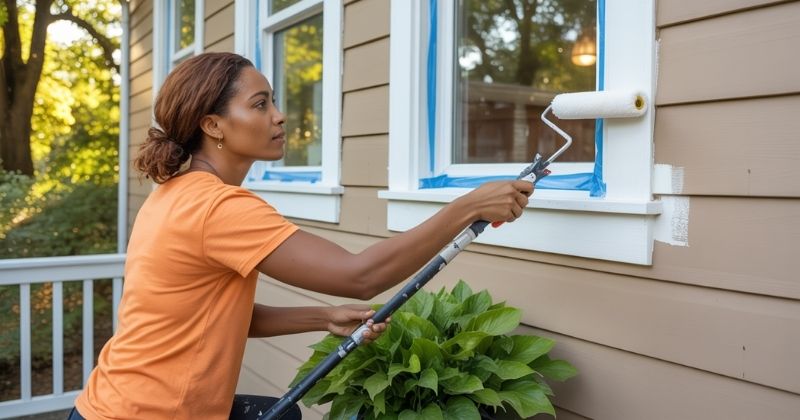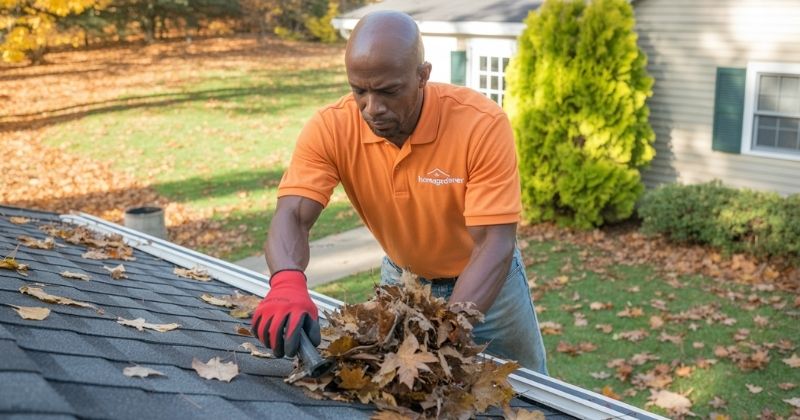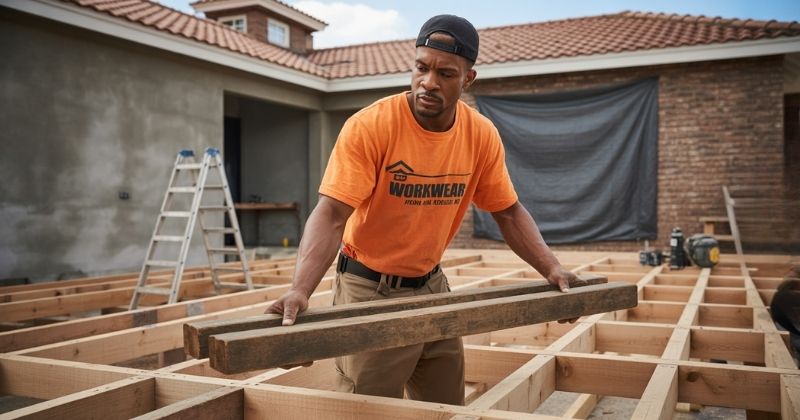
Managing property upkeep is one of the most important responsibilities that come with owning a home. Unlike renting, where landlords usually handle repairs, homeowners must budget for and manage both routine maintenance and unexpected issues themselves. For new property owners in South Africa, this includes understanding the different types of costs involved, setting up a clear maintenance plan, and knowing when to tackle tasks personally or bring in a professional.
Key Takeaways
- Plan For Both Routine And Emergency Costs: Set aside funds for both scheduled maintenance and unexpected repairs. A recommended approach is to allocate 5% to 10% of your rental income to maintenance reserves.
- Follow A Structured Maintenance Programme: Maintain your home through regular tasks, including clearing gutters, checking for water leaks, and servicing electrical systems to prevent more serious damage over time.
- Use Reliable Tradespeople And Upgrade Strategically: Keep a trusted list of service providers for larger jobs and consider practical upgrades like outdoor additions, kitchen renovations, and energy-efficient improvements to enhance your home’s value and functionality.
About Arcadia Finance
Get the funds you need hassle-free with Arcadia Finance. Compare offers from 19 trusted, NCR-compliant lenders and pay zero application fees. Experience a smooth, reliable process designed for your financial goals.
Understanding Property Maintenance Costs
Property maintenance costs are generally grouped into two main types: planned expenses and unplanned or emergency costs.
Planned maintenance refers to scheduled activities such as routine inspections, servicing systems like heating or cooling units, garden upkeep, and small-scale repairs. These costs tend to be more predictable and can usually be included in an annual maintenance budget.
Unplanned maintenance, on the other hand, includes urgent repairs caused by unexpected issues such as burst water pipes, electrical breakdowns, or weather-related damage. These types of expenses are often unpredictable and can be expensive, so it is wise to maintain a contingency fund. A common recommendation is to allocate 5% to 10% of rental income towards maintenance reserves.
The overall condition and age of the property play a major role in how much needs to be spent on upkeep. Older properties often require more frequent maintenance and replacement of systems, whereas newer buildings may benefit from being under warranty or constructed with more durable materials, which can help reduce immediate repair needs.

Home Maintenance Programme
A practical approach to maintaining your home is to implement a structured maintenance programme that includes weekly, monthly, seasonal and yearly tasks. This plan should address both the visual condition of the property, such as lawn upkeep and plant care, and more technical issues like plumbing, electrical systems, heating and air conditioning repairs.
Basic tasks should include:
- Clear gutters and drains in preparation for the rainy season.
- Repair broken windows, replace perished putty and remove rust from window frames without delay.
- Repaint chipped or peeling areas regularly to prevent further deterioration.
- Use pest control services as and when necessary.
- Replace faulty lightbulbs immediately.
- Inspect and fix water leaks promptly to prevent damage.
- Examine the main electrical panel for signs of rust or moisture. Turn breakers off and on occasionally to keep them in working condition, and tighten all fuses. If the panel feels warm or emits a burnt smell, contact a qualified electrician. Keep the area surrounding the panel unobstructed for safety and easy access.
Planning For Unexpected Costs
It is wise to have funds ready for emergency repairs or larger expenses. Consider opening a separate savings or credit account, and contribute monthly to avoid relying on high-interest debt during urgent situations. If a major expense occurs, aim to rebuild the account afterwards. Tackle small tasks yourself where possible to save on labour costs, and only hire professionals for work that involves risk or technical skill. Teamwork can also be helpful, so offering assistance to neighbours with their projects may encourage reciprocal support.
Reliable Help For Bigger Jobs
For more challenging tasks, compile a list of dependable tradespeople, beginning with a handyman or general contractor who is capable of handling a range of work. Since call-out charges may apply, try to schedule multiple jobs at once to make the visit worthwhile.
Ask for recommendations from trusted sources for an electrician, plumber, carpenter and painter. Begin with minor jobs for each one to confirm that you’re happy with the standard of their service before relying on them for larger tasks.

Functional and Appealing Renovation Ideas
Although ongoing maintenance is a necessary part of property ownership, there is also scope to carry out targeted improvements that enhance both the usefulness and appearance of your home. Full-scale renovations can be expensive, but smaller and more affordable changes can still deliver a noticeable difference.
Below are practical renovation ideas that could increase your home’s overall value:
Extend Living Space With Outdoor Additions
Adding a deck or a pergola is a cost-effective way to increase your usable living space. These features create a dedicated area for outdoor dining or entertainment, which adds measurable appeal. Composite decks and pergolas from suppliers such as Best Deck replicate the natural appearance of wood while offering benefits such as resistance to weather damage, no risk of splintering or warping, and minimal maintenance requirements.
Upgrade The Kitchen And Bathroom
These rooms are often the most frequently used in any household and tend to leave a lasting impression on prospective buyers. A modern upgrade can significantly improve property appeal. Consider installing waterproof SPC flooring, updated backsplashes for basins and sinks, new taps and door handles, stylish lighting, or repainting cupboards and walls for a cleaner, more contemporary finish.
Enhance First Impressions With Curb Appeal
Ensure that your home presents well from the outside. Installing exterior cladding can dramatically enhance its appearance. Composite wood cladding from companies like Best Deck is offered in multiple colours and finishes, allowing homeowners to match it to their preferred design. This material can also be used indoors to create a bold feature wall that adds character to any space.
Boost Energy Efficiency
As more South Africans seek environmentally responsible homes, energy efficiency has become a key consideration. Upgrading to energy-efficient windows, insulation and appliances can reduce utility costs and appeal to buyers who are environmentally aware.
Cost-Saving Strategies For Maintenance And Operations
There are a number of practical methods that landlords can apply to cut back on maintenance and operational expenses while still maintaining acceptable standards.
- Energy Efficiency: Replacing outdated appliances, installing low-consumption lighting, and improving insulation in shared areas can significantly reduce utility costs over time.
- Preventive Inspections: Conducting routine property inspections helps identify small problems early on, which can prevent more costly repairs in the future.
- Bulk Purchasing: Obtaining cleaning materials, replacement parts, and basic supplies in larger quantities can lower the average cost per item and save money over time.
- Long-Term Vendor Relationships: Establishing ongoing partnerships with reliable service providers can result in more competitive pricing and consistent service quality.
- Tenant Education: Providing tenants with basic maintenance advice, such as how to prevent blocked drains or report leaks promptly, can help minimise preventable damage.
- Tax Deductions: Maintaining clear and accurate records of all expenses ensures that landlords are able to claim every allowable deduction when filing tax returns.

Tips For New Homeowners In South Africa
| Tip | Details |
|---|---|
| Purchasing a home is a major milestone | Whether it’s your very first property or a long-awaited upgrade, homeownership brings new responsibilities, personal freedom, and a sense of pride that comes with having a place to call your own. |
| Keep Your Homeownership Documents In One Place | Store all important documents in a secure and accessible location, whether physical or electronic. This should include your bond or mortgage papers, building plans, warranties, insurance details, proof of renovations, and municipal accounts. Keeping everything organised will help when applying for maintenance work, reselling your property, or handling tax-related matters. |
| Learn The Basics Of Your Home’s Systems | Familiarise yourself with the location and operation of key household systems. Know how to shut off the main water supply, locate the circuit breaker, and understand the geyser’s controls. This knowledge is helpful in emergencies or when doing basic maintenance. |
| Create A Home Emergency Fund | Unexpected repair costs can arise, even in homes that are well looked after. Set aside money specifically for urgent repairs such as plumbing failures or appliance breakdowns. This will prevent you from using funds meant for other expenses. |
| Build A Relationship With Your Neighbours | Being on good terms with your neighbours can improve your overall experience as a homeowner. A simple greeting or friendly chat can foster a stronger sense of community and improve safety. Neighbours can also recommend local tradespeople or help keep watch over your property when you’re away. |
| Equip Yourself With Basic Tools | Every homeowner should have a basic toolkit for minor repairs and tasks. You don’t need to be highly skilled, but having essentials like a hammer, screwdrivers, tape measure, drill, and pliers will be useful for routine jobs around the house. |
| Stay On Top Of Maintenance | Tackling minor issues early can save you time and money. Fix roof leaks, electrical faults, clogged gutters, and cracks as soon as you notice them. A seasonal checklist can help ensure nothing is overlooked throughout the year. |
| Check Your Insurance Regularly | Make sure your insurance policy accurately reflects your current circumstances. If you’ve made any renovations, installed new security features, or added valuable items, your home and contents insurance may need to be adjusted to ensure full coverage. |
| Improve Your Home’s Energy Efficiency | Reducing energy usage can lower your utility bills and lessen reliance on the grid. Consider using LED bulbs, insulating your geyser, switching to gas appliances, and purchasing energy-efficient models. Installing solar panels or inverters can also be a worthwhile long-term investment. |
| Be Aware Of Rates And Local By-Laws | Stay informed about your municipal rates, property taxes, and any local regulations. These may include building codes, restrictions on pets, or refuse collection rules. Understanding these requirements helps you avoid fines and better manage your household budget. |
| Participate In Community Activities | Get involved in your local area by joining WhatsApp groups, attending events, or taking part in homeowners’ meetings. Staying connected helps you remain informed about safety matters, service issues, or developments that may affect your property or quality of life. |
Conclusion
Handling repairs and maintenance as a new homeowner in South Africa requires a proactive and well-planned approach. By budgeting for both regular upkeep and unexpected issues, following a consistent maintenance routine, and working with reliable service providers, you can protect the condition and value of your property. Strategic upgrades such as energy-efficient improvements and functional renovations not only make your home more comfortable but can also increase its appeal to future buyers. Staying informed and prepared will help you manage your home with confidence and avoid unnecessary stress or expenses.
Frequently Asked Questions
It is generally recommended to allocate between 5% and 10% of your annual rental income or the property’s value for maintenance and repairs. This helps cover routine upkeep as well as unexpected costs, ensuring that your home remains in good condition without placing pressure on your regular finances.
Planned maintenance refers to tasks that are scheduled in advance, such as routine inspections, servicing systems, and garden care. Unplanned maintenance involves urgent or emergency repairs, like fixing burst pipes or electrical faults, which often occur without warning and can be more costly.
Not necessarily. Basic repairs and maintenance such as replacing lightbulbs, tightening loose fittings, or clearing gutters can usually be done yourself. However, for more complex work like electrical repairs, plumbing issues, or structural fixes, it is safer and more effective to hire a qualified professional.
Begin by asking neighbours, friends, or colleagues for personal recommendations. Once you’ve identified potential tradespeople, try them out with smaller jobs first to assess the quality of their work. Keep a list of those you trust for future use, so you’re prepared when bigger tasks arise.
Simple upgrades such as installing energy-efficient lighting, repainting high-traffic areas, or adding outdoor features like a pergola or deck can significantly enhance your home’s appearance and usability. These changes are generally affordable and can increase both comfort and overall property value without the need for full-scale renovations.
Fast, uncomplicated, and trustworthy loan comparisons
At Arcadia Finance, you can compare loan offers from multiple lenders with no obligation and free of charge. Get a clear overview of your options and choose the best deal for you.
Fill out our form today to easily compare interest rates from 19 banks and find the right loan for you.


